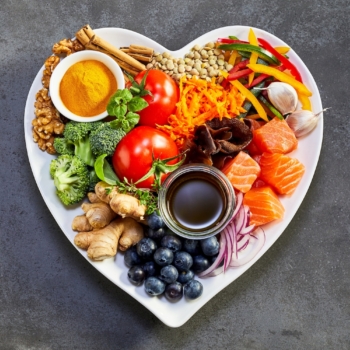Top Diets for People Over 65: Optimize Your Health in Your Golden Years
As we age, it becomes increasingly important to prioritize our health and well-being. One of the key ways to do this is through a healthy diet. In this article, we will explore the top diets for people over 65, taking into consideration the unique needs and considerations of seniors. By following these diets, you can optimize your health and enjoy your golden years to the fullest.
Importance of a Healthy Diet for Seniors
A healthy diet is crucial for individuals of all ages, but it becomes even more vital as we grow older. As we age, our bodies undergo various changes, including a decrease in muscle mass, changes in metabolism, and an increased risk of chronic diseases. A well-balanced diet can help combat these challenges and support overall health.
A healthy diet for seniors should focus on nutrient-dense foods that provide essential vitamins, minerals, and antioxidants. These include fruits, vegetables, whole grains, lean proteins, and healthy fats. It’s also important to stay hydrated and limit the consumption of processed foods, added sugars, and unhealthy fats. By following a healthy diet, seniors can improve their energy levels, support their immune system, and reduce the risk of age-related diseases.
Factors to Consider When Choosing a Diet for Seniors
When choosing a diet, there are several factors to consider. Firstly, it’s important to consult with a healthcare professional or a registered dietitian. They can provide personalized recommendations based on your specific health needs and any existing medical conditions.
Another important factor to consider is the ease of adherence to the diet. As we age, our taste buds may change, and certain foods may become less appealing. It’s crucial to choose a diet that is enjoyable and sustainable in the long term. Additionally, the diet should be flexible enough to accommodate any dietary restrictions or preferences.
Lastly, it’s important to consider the nutritional requirements of seniors. As we age, our bodies may require different amounts of certain nutrients, such as calcium, vitamin D, and vitamin B12. The chosen diet should provide adequate amounts of these nutrients to support optimal health.
Mediterranean Diet for Seniors
The Mediterranean diet is often hailed as one of the healthiest diets in the world, and it’s particularly beneficial for seniors. This diet is rich in fruits, vegetables, whole grains, legumes, nuts, seeds, and olive oil. It also includes moderate amounts of fish, poultry, and dairy products, while limiting red meat and processed foods.
The Mediterranean diet is packed with essential nutrients, including fiber, antioxidants, and healthy fats. It has been associated with numerous health benefits, such as reducing the risk of heart disease, improving brain health, and promoting longevity. The diet’s emphasis on whole foods and healthy fats can also support weight management and overall well-being.
To follow the Mediterranean diet, seniors can incorporate more fruits and vegetables into their meals, choose whole grains over refined grains, opt for lean proteins like fish and poultry, and use olive oil as their primary source of fat. This diet is not only delicious but also offers a wide range of health benefits for seniors.
DASH Diet for Seniors
The DASH (Dietary Approaches to Stop Hypertension) diet is another excellent option for seniors looking to optimize their health. This diet is specifically designed to lower blood pressure and reduce the risk of heart disease. It emphasizes fruits, vegetables, whole grains, lean proteins, and low-fat dairy products.The DASH diet is rich in nutrients such as potassium, calcium, and magnesium, which are essential for maintaining healthy blood pressure levels. It also encourages the reduction of sodium intake, which is particularly important for seniors who may be more susceptible to high blood pressure.
To follow the DASH diet, seniors can increase their consumption of fruits and vegetables, choose whole grains over refined grains, opt for lean proteins like fish and poultry, and limit their intake of sodium-rich foods such as processed meats and canned soups. By following the DASH diet, seniors can improve their heart health and reduce the risk of hypertension.
Anti-Inflammatory Diet for Seniors
Inflammation is a natural response of the immune system, but chronic inflammation can contribute to various health problems, including heart disease, diabetes, and arthritis. For seniors looking to reduce inflammation and support overall health, the anti-inflammatory diet is worth considering.
The anti-inflammatory diet focuses on whole, nutrient-dense foods that have been shown to reduce inflammation in the body. These include fruits, vegetables, fatty fish, nuts, seeds, and healthy fats like olive oil. It also encourages the reduction of processed foods, refined carbohydrates, and unhealthy fats.
By following an anti-inflammatory diet, seniors can potentially reduce pain and inflammation associated with chronic conditions, improve joint health, and support overall well-being. It’s important to note that while this diet may provide benefits, it’s always recommended to consult with a healthcare professional before making any significant dietary changes.
Plant-Based Diets for Seniors
Plant-based diets, such as vegetarian or vegan diets, are gaining popularity for their numerous health benefits. These diets emphasize plant foods like fruits, vegetables, legumes, whole grains, nuts, and seeds, while limiting or eliminating animal products.
Plant-based diets can provide seniors with a wide range of nutrients, including fiber, vitamins, minerals, and antioxidants. They have been associated with a lower risk of heart disease, certain cancers, and type 2 diabetes. Additionally, plant-based diets are often lower in saturated fat and cholesterol, which can benefit heart health.
Seniors interested in adopting a plant-based diet can start by gradually increasing their consumption of plant foods and reducing their intake of animal products. It’s important to ensure adequate protein intake and consider supplementation of certain nutrients like vitamin B12, which is primarily found in animal products.
Low-Sodium Diets for Seniors
As we age, our bodies become more sensitive to the effects of sodium, which can increase the risk of high blood pressure and other cardiovascular problems. Therefore, seniors should consider following a low-sodium diet to support heart health and overall well-being.
A low-sodium diet involves reducing the consumption of processed and packaged foods, which are often high in sodium. Seniors should also limit the use of salt in cooking and opt for herbs, spices, and other flavorings to enhance the taste of their meals.
By following a low-sodium diet, seniors can reduce their risk of hypertension, decrease water retention, and support heart health. It’s important to read food labels carefully and choose low-sodium or sodium-free options whenever possible.
High-Fiber Diets for Seniors
Fiber is a crucial component of a healthy diet, and it becomes even more important for seniors. A high-fiber diet can help promote regular bowel movements, prevent constipation, and support digestive health. It can also help control blood sugar levels, lower cholesterol levels, and support weight management.
To increase fiber intake, seniors should focus on consuming whole grains, fruits, vegetables, legumes, and nuts. These foods are rich in fiber and provide a wide range of other essential nutrients. It’s also important to drink plenty of water when increasing fiber consumption to avoid digestive discomfort.
By following a high-fiber diet, seniors can support their digestive health, reduce the risk of chronic diseases, and maintain a healthy weight. It’s important to gradually increase fiber intake to allow the body to adjust.
Best Diets for Weight Management in Seniors
Maintaining a healthy weight is crucial for overall health and well-being, especially as we age. Excess weight can increase the risk of chronic diseases, put strain on joints, and affect mobility. Therefore, seniors should consider diets that support weight management.
Diets that focus on portion control, balanced meals, and nutrient-dense foods are ideal for weight management in seniors. The Mediterranean diet and the DASH diet, mentioned earlier, are both excellent options for seniors looking to maintain a healthy weight.
It’s also important to incorporate regular physical activity into a weight management plan. Engaging in activities such as walking, swimming, or strength training can help burn calories, build muscle, and support overall health.
Tips for Successfully Sticking to a Diet in Your Golden Years
Sticking to a diet can be challenging at any age, but it’s especially important for seniors to prioritize their health. Here are some tips to help you successfully stick to a diet in your golden years:
- Set realistic goals: Start with small, achievable goals and gradually work your way up. This will help you stay motivated and build sustainable habits.
- Plan and prepare meals in advance: Planning your meals and snacks ahead of time can help you make healthier choices and avoid impulse eating. Chefs For Seniors can prepare tasty meals that align with your chosen dietary goals, so they’ll be ready to grab from your fridge or freezer whenever you need them!
- Get support: Enlist the support of family members, friends, or a support group. Having someone to share your journey with can make it more enjoyable and easier to stick to your diet.
- Stay hydrated: Drinking enough water is crucial for overall health and can help control appetite. Aim to drink at least 8 glasses of water per day.
- Practice mindful eating: Pay attention to your hunger and fullness cues, and eat slowly to fully enjoy your meals. This can help prevent overeating and promote better digestion.
- Stay active: Regular physical activity is essential for overall health and can complement your diet efforts. Find activities that you enjoy and make them a part of your daily routine.
Conclusion
Optimizing your health in your golden years starts with a healthy diet. By choosing one of the top diets for people over 65, such as the Mediterranean diet, DASH diet, anti-inflammatory diet, plant-based diets, low-sodium diets, or high-fiber diets, you can support your overall well-being and reduce the risk of chronic diseases. Remember to consult with a healthcare professional or registered dietitian before making any significant dietary changes. With the right diet and lifestyle choices, you can enjoy your golden years to the fullest.
Let your Chefs For Seniors personal chef take the hassle out of sticking to a particular diet or meal plan. Our skilled chefs specialize in making meal plans that align with your nutritional goals and unique food preferences.
Disclaimer: This article is for informational purposes only and does not provide medical advice. While we at Chefs for Seniors specialize in providing healthy, customizable meals, we are not medical professionals. Always consult with your healthcare provider for medical advice, diagnoses, and treatment plans to fit your specific needs.



 shutterstock
shutterstock